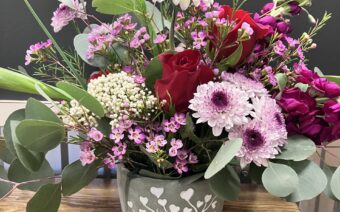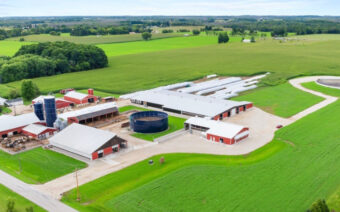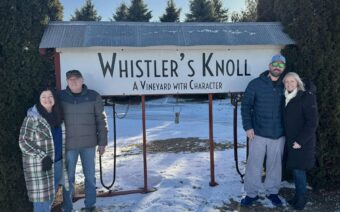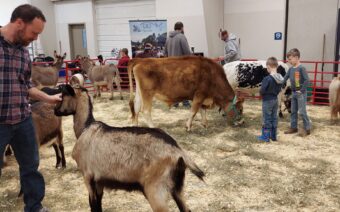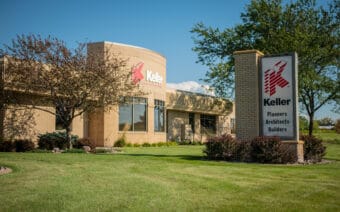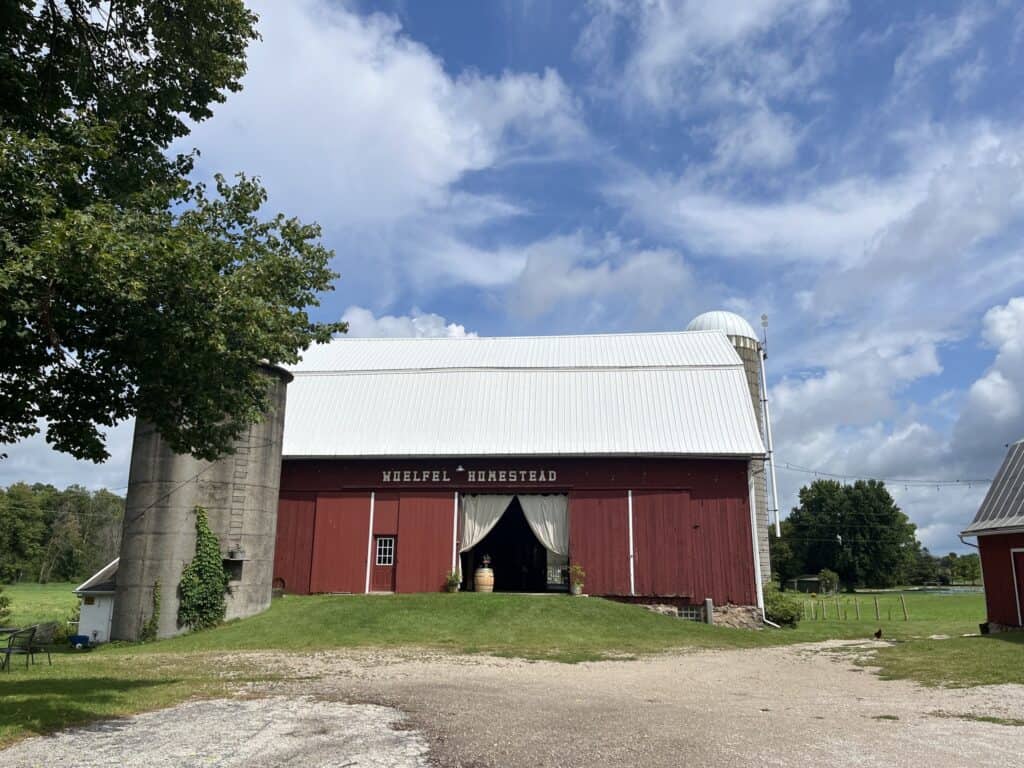
July 28, 2025
NEW HOLSTEIN – A homestead on its sixth generation of family ownership is celebrating one year since its current owners – husband and wife, Kerri Futch and Jon Woelfel – opened its on-site winery and vineyard – Wolf & Fox Winery.
“The homestead was settled in 1855, and it’s been in my husband’s family for six generations,” Futch said. “So, when we decided to start the process of purchasing the land and creating the vineyard and winery, there was no way we were changing the name.”
However, Futch said that she and Jon wanted their “business to have a separate identity” from the Woelfel Homestead – which, she added, is much more than just a beautiful property.
“We partner with other farmers who are leasing out the land,” she said. “So, there are multiple enterprises that… we’re partnering with.”
During their first year on the homestead in 2021, Futch said she and Jon planted the vineyard, as well as “900 native trees,” worked with Prairie Folk Farm “to plant pasture grass,” started looking for a beekeeper and got their “free range hens that provide eggs [as well as] keep pests down in the vineyard” – because it “was always a part of our vision to diversify the land use.”
The homestead’s current partners, Futch said, were brought on to help achieve the couple’s long-term vision for the property.
“It was never going to be just a winery,” she said. “Prairie Folk Farm runs about 100 ewes right now on the back 40 [acres] for pastured lamb. [Our] beekeeper – [his business is] called the B’s Squeeze – and he [has] honey bees on the property, and we sell bee products in our tasting room.”
Wolf & Fox Winery, Futch said, helps her and Jon achieve the totality of their vision by offering both diversity to the land and a way to share their property – located at W1139 Lime Kiln Road in New Holstein – with their community.
“That bigger picture of land stewardship has always included a vineyard and winery as a value add, but we think it’s really important when you have land like this – with two creeks, woods, wetlands, a pond – [it’s] worth sharing with the public,” she said.
‘A big year’
The generations of Woelfel’s who had owned and worked the homestead property since 1855, Futch said, were dairy farmers – up until Jon and his siblings.
“Around the late ’90s, my father-in-law and mother-in-law – [Jon’s] parents – decided they were done with milking, but none of the kids really wanted to take over farming,” she said. “So, they got out of farming, and Jon ended up moving to the West Coast to pursue winemaking.”
Sonoma County, California, Futch said, is where she and Jon met – though it’s not where they intended to stay.
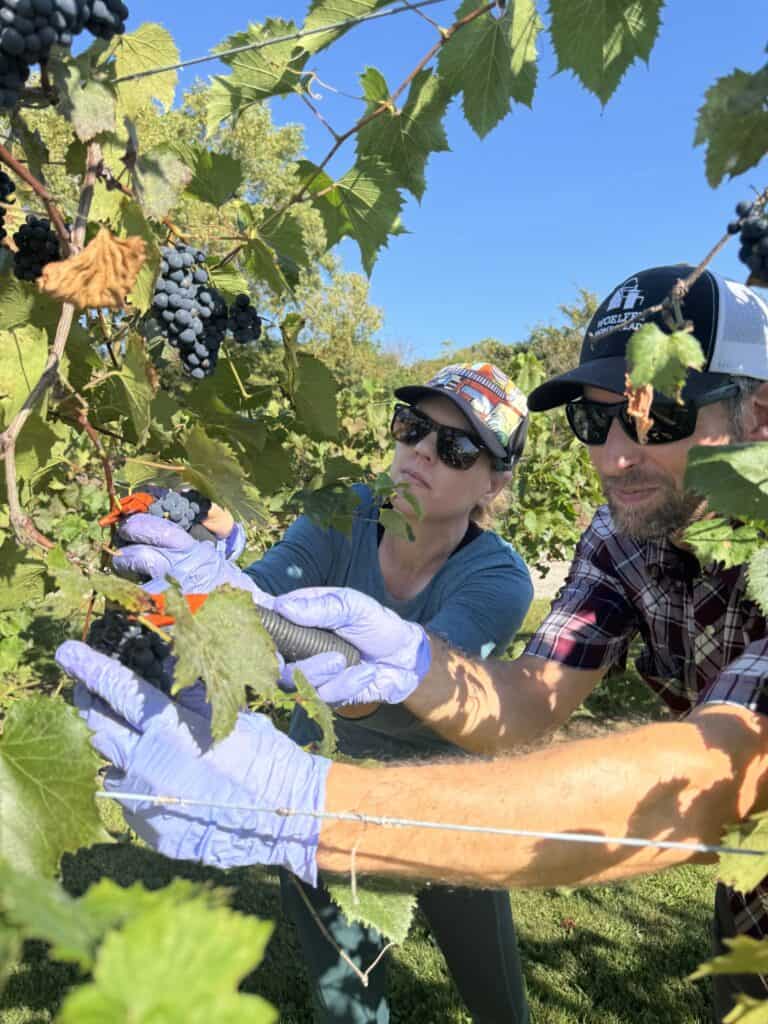
“His dream of moving back to the homestead and starting a winery started to develop while we were still in California,” she said. “He’s always had a deep reverence and love for the land and pictured himself moving back home and bringing great wines to his [family’s] little slice of heaven.”
Four years ago, Futch said “the timing was right” for her and Jon to act on that dream and relocate to the homestead.
“He was ready to move on from California, and his parents also were ready to start selling pieces of the property to us,” she said. “We got here four years ago, planted the vineyard right away and started working with conservation professionals to figure out what we needed to do for soil health and water.”
With wine grapes, Futch said growers have to play “the long game,” as grape vines aren’t mature enough for harvesting until “three to five years” after they are planted.
So, for their first year in business, Futch said she and Jon used their connections on the West Coast to open Wolf & Fox Winery before their vineyard was ready.
“We partnered with our friends on the West Coast to bring in wine that was produced there – that was grown in Sonoma County [and] Yolo County, [California] – and we started our winery serving those wines,” she said.
Futch said they also purchased grapes from other local Wisconsin growers.
“In fact, we have some Petite Pearl – [a cold-hardy, hybrid grape] – aging and barreled right now that we’re going to release by the end of the summer/early fall,” she said. “So, we’re pretty excited about that.”
However, Futch said 2025 “is a big year” for the winery, as the vines she and Jon planted four years ago are gearing up to bear fruit ripe for harvesting for the first time.
“This year will be the first year that we’ll be able to get some fruit from our cold-hardy varietals that are planted in our vineyard,” she said.
Wisconsin-grown wines, beyond
Though they’re excited to start selling wine 100% grown from the literal fruits of their labor, Futch said she and Jon will still make and serve wine derived from other viticulturists’ grapes.
“We’re unapologetically going to continue to buy fruit, because we think it’s great, and when you have connections with really great vineyards that produce amazing wine, you keep those connections in the industry alive,” she said.
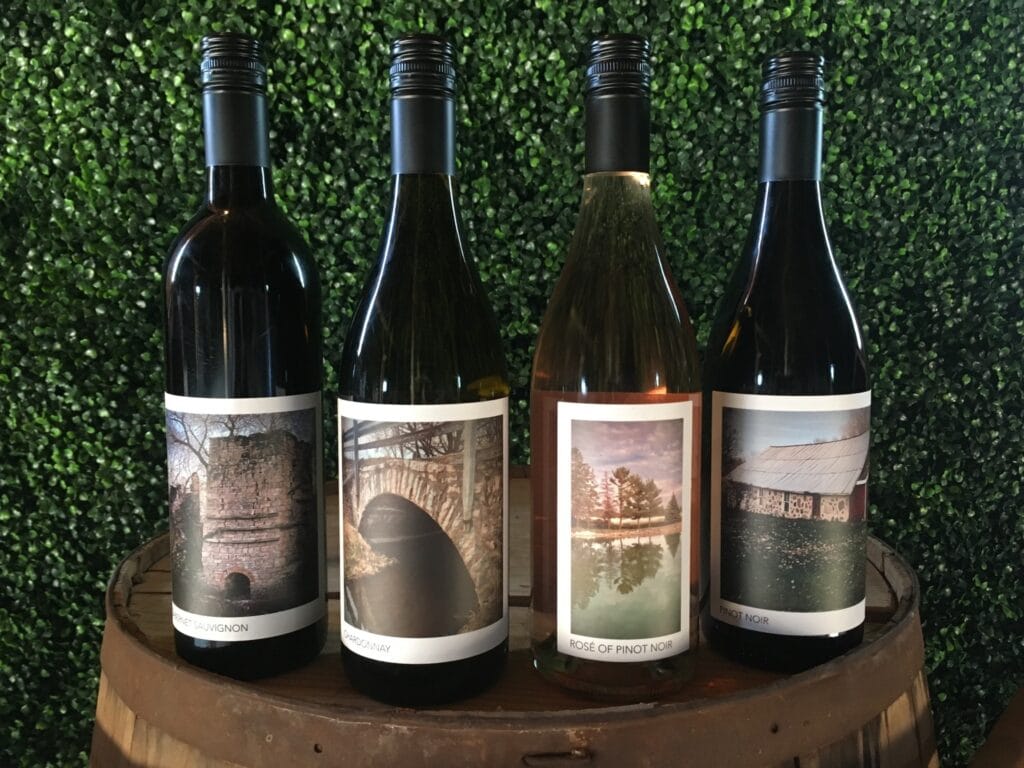
That practice of buying other vineyards’ grapes, Futch said, helps her and Jon “keep things fresh in the tasting room.”
“I think that’s what’s fun about wine – it’s such a regional[ly specific] product, so I feel like we’re always going to feature different [wine],” she said. “We feature wines from other wine regions in the world, too.”
Being located in the Midwest – specifically the Wisconsin Ledge American Viticultural Area (AVA) – Futch said, presents both challenges and benefits.
In order to grow grapes in the Midwest that have similar flavor profiles to those grown in Europe – “like Chardonnay, Cabernet Sauvignon [and] Pinot Noir” – she said hybrid grapes had to be created.
“A lot of the [grapes] we describe as cold-hardy varietals that exist right now, we have the University of Minnesota to thank and other Midwest growers who hybridized vinifera grapes,” she said. “Those types of grapes have been used and crossed with wild grapes that already grow here in the Midwest.”
Those hybrid grapes, Futch said, are being bred to help them resist common problems that traditionally plague Midwest-based vineyards.
“Nothing’s going to be completely safe, but they’re trying to breed in some characteristics to make them survive different pest pressures – like bugs that are going after the grapes,” she said. “Our shorter and more unpredictable growing season [also] provides challenges that growers on the West Coast don’t have to contend with.”
Rainstorms, “really muggy, humid days” and harsh winters are only some of the environmental challenges Futch said Midwest growers have to face due to the region’s at-times-unpredictable weather.
However, she said good grape management practices can, and oftentimes do, prevent these issues from impacting the health and viability of their vineyard.
“It’s more management intensive [in the Midwest], but… [in] the Wisconsin Ledge AVA… [the] soils are great for growing grapes,” she said. “Additionally, our farm is situated over a limestone deposit. Grapes like that as well, so we’re lucky in that regard.”
And with plenty of space to offer a “grape to glass” experience, Futch said Wolf & Fox Winery produces and bottles every wine they sell.
“We have all the equipment, [and] we process everything [on site],” she said. “We have our bottler, crusher and stemmer. We have our ferment tanks, we have barrels [and] we have all of our lab equipment. It’s a lot, if you think about it… but Jon has been doing this for so long that it’s all second nature [to him].”

Jon, Futch said, is Wolf & Fox Winery’s winemaker – bringing 16 years of wine-making experience from California to his family’s homestead – whereas she manages “a lot of the behind-the-scenes, marketing-type things and the vineyard.”
“It’s [an] all-hands-on-deck [operation] in our small business,” she said. “We have volunteers for our bottling [and] our labeling, [and] my kids help out with that [as well].”
Come this fall – when Futch said their vines are expected to be harvest-ready – all hands will indeed be needed to bottle and label Wolf & Fox Winery’s first estate-grown wine.
“The whites will be released sooner than the reds,” she said. “The reds will age in oak barrels – so we don’t quite know yet what [that timeline is] – but we anticipate spring release of some of the whites, and we are going to be releasing new vintages of our California wines that are coming out this summer.”
Live music, event venue
On top of the wine, Futch said patrons of Wolf & Fox can also enjoy live music during its summer concert series hosted in the homestead’s recently renovated barn.
“We’re open year-round, but in the summer we have bands that come out pretty much every Saturday,” she said. “It’s family-friendly, and we operate rain or shine, since it’s all [indoors].”
In addition to hosting public events, Futch said Wolf & Fox Winery at the Woelfel Homestead can also serve as a host site for private events.
“We [host] weddings, parties and corporate events – that sort of thing,” she said.
For more information on Wolf & Fox Winery or the Woelfel Homestead, visit wolfandfoxwinery.com or find them on social media.
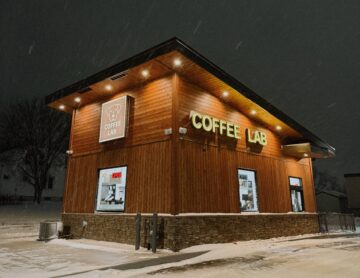 Built from the ground ‘pup’ – Coffee Lab open in Manitowoc
Built from the ground ‘pup’ – Coffee Lab open in Manitowoc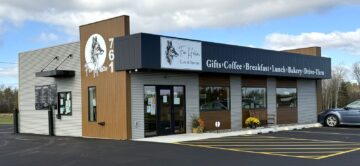 Fox Hollow Café & Shoppe now serving customers in Dorchester
Fox Hollow Café & Shoppe now serving customers in Dorchester


